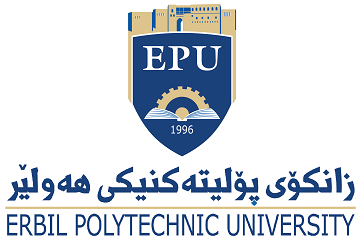Experimental Investigation of the Hydroxy Gas Generation as a Clean Energy Source for Spark Ignition Engine Operation Using Different Electrolytes
DOI:
https://doi.org/10.25156/ptj.v11n1y2021.pp16-21Keywords:
Hydroxy gas generation, Electrolytes, Hydroxy gas fuel, Clean energy source, Alternative fuelsAbstract
The main objective of this research is to generate the hydrogen gas as a fuel and part of hydroxy gas (HHO) from the drinking water (H2O) using electrolyzing method with a different electrolytes such as sodium hydroxide (NaOH), sodium carbonate (Na2CO3), and Vinegar in HHO generator for best results, the practical examinations were done by a generator that designed and built for this purpose using plate electrodes, with a rechargeable 12-volt battery and the produced gas was measured at each case and used as a fuel for operating a small single-cylinder spark-ignition engine (Honda G 200) with taking into account the safety precautions. The results show that increasing the ratio of (NaOH) grams/liter of H2O increases the gas production, while the other two electrolytes (Na2CO3 and vinegar) are not effecting too much, and using the mixing procedure (%) of the electrolytes (NaOH with Na2CO3) and (Na2CO3 with Vinegar), it is observed that the HHO generation noticeable increases with increasing the mixing ratio of the first mixture and not too much with the second.
Downloads
References
ABDALLAH, M., SALEM, M., ZAAFARANY, I., FAWZY, A. & FATTAH, A. A. 2017. Corrosion performance of stainless steel and nickel alloys in aqueous sodium hydroxide as revealed from cyclic voltammetry and potentiodynamic anodic polarization. Oriental Journal of Chemistry, 33, 2875.
APPLEBY, A. 1994. Fuel cell electrolytes: evolution, properties and future prospects. Journal of power sources, 49, 15-34.
BACON, F. T. 1969. Fuel cells, past, present and future. Electrochimica Acta, 14, 569-585.
BADWAL, S. P., FOGER, K., ZHENG, X. G. & JAFFREY, D. 1999. Fuel cell interconnect device. Google Patents.
BARCLAY, F. 2002. Fundamental thermodynamics of fuel cell, engine, and combined heat and power system efficiencies. Proceedings of the Institution of Mechanical Engineers, Part A: Journal of Power and Energy, 216, 407-417.
BARRETO, L., MAKIHIRA, A. & RIAHI, K. 2003. The hydrogen economy in the 21st century: a sustainable development scenario. International Journal of Hydrogen Energy, 28, 267-284.
DUNN, S. 2002. Hydrogen futures: toward a sustainable energy system. International journal of hydrogen energy, 27, 235-264.
EL-KASSABY, M. M., ELDRAINY, Y. A., KHIDR, M. E. & KHIDR, K. I. 2016. Effect of hydroxy (HHO) gas addition on gasoline engine performance and emissions. Alexandria Engineering Journal, 55, 243-251.
HOOGERS, G. 2002. Fuel cell technology handbook, CRC press.
ILHAK, M. I., TANGOZ, S., AKANSU, S. O. & KAHRAMAN, N. 2019. Alternative Fuels for Internal Combustion Engines. The Future of Internal Combustion Engines. IntechOpen.
LARMINIE, J., DICKS, A. & MCDONALD, M. S. 2003. Fuel cell systems explained, J. Wiley Chichester, UK.
MATLOOB, M. H. 2014. Zahdi date vinegar: Production and characterization. American Journal of Food Technology, 9, 231- 245.
MOMIRLAN, M. & VEZIROGLU, T. 2002. Current status of hydrogen energy. Renewable and sustainable energy reviews, 6, 141-179.
SANTILLI, R. M. 2006. A new gaseous and combustible form of water. International Journal of Hydrogen Energy, 31, 1113-1128.
SCHULTE, I., HART, D. & VAN DER VORST, R. 2004. Issues affecting the acceptance of hydrogen fuel. International Journal of Hydrogen Energy, 29, 677-685.
SHINNAR, R. 2003. The hydrogen economy, fuel cells, and electric cars. Technology in society, 25, 455-476.
SIERENS, R. & ROSSEEL, E. Sequential injection of gaseous fuels. Proceedings of the Fifth International EAEC Congress, Strasbourg, June, Paper No SIA 9506A03, 1995. 10.
SIERENS, R. & ROSSEEL, E. Variable composition hydrogen/natural gas mixtures for increased engine efficiency and decreased emissions. Proceedings of the ASME 1998 Spring Engine Technology Conference (ICED division), Fort Lauderdale, April 1998, paper 98-ICE-105. 1998.
Downloads
Published
How to Cite
Issue
Section
License
Copyright (c) 2021 Yousef A. Sharif, Saad S. Jasim, Rafeq A. Khalefa, Shivan J. Taher

This work is licensed under a Creative Commons Attribution-NonCommercial-NoDerivatives 4.0 International License.
Authors who publish with this journal agree to the following terms:
1. Authors retain copyright and grant the journal right of first publication with the work simultaneously licensed under a Creative Commons Attribution License [CC BY-NC-ND 4.0] that allows others to share the work with an acknowledgment of the work's authorship and initial publication in this journal.
2. Authors are able to enter into separate, additional contractual arrangements for the non-exclusive distribution of the journal's published version of the work (e.g., post it to an institutional repository or publish it in a book), with an acknowledgment of its initial publication in this journal.
3. Authors are permitted and encouraged to post their work online (e.g., in institutional repositories or on their website) prior to and during the submission process, as it can lead to productive exchanges, as well as earlier and greater citation of published work (See The Effect of Open Access).






 Polytechnic Journal ; A Periodical Open Access Scientific Journal
Polytechnic Journal ; A Periodical Open Access Scientific Journal